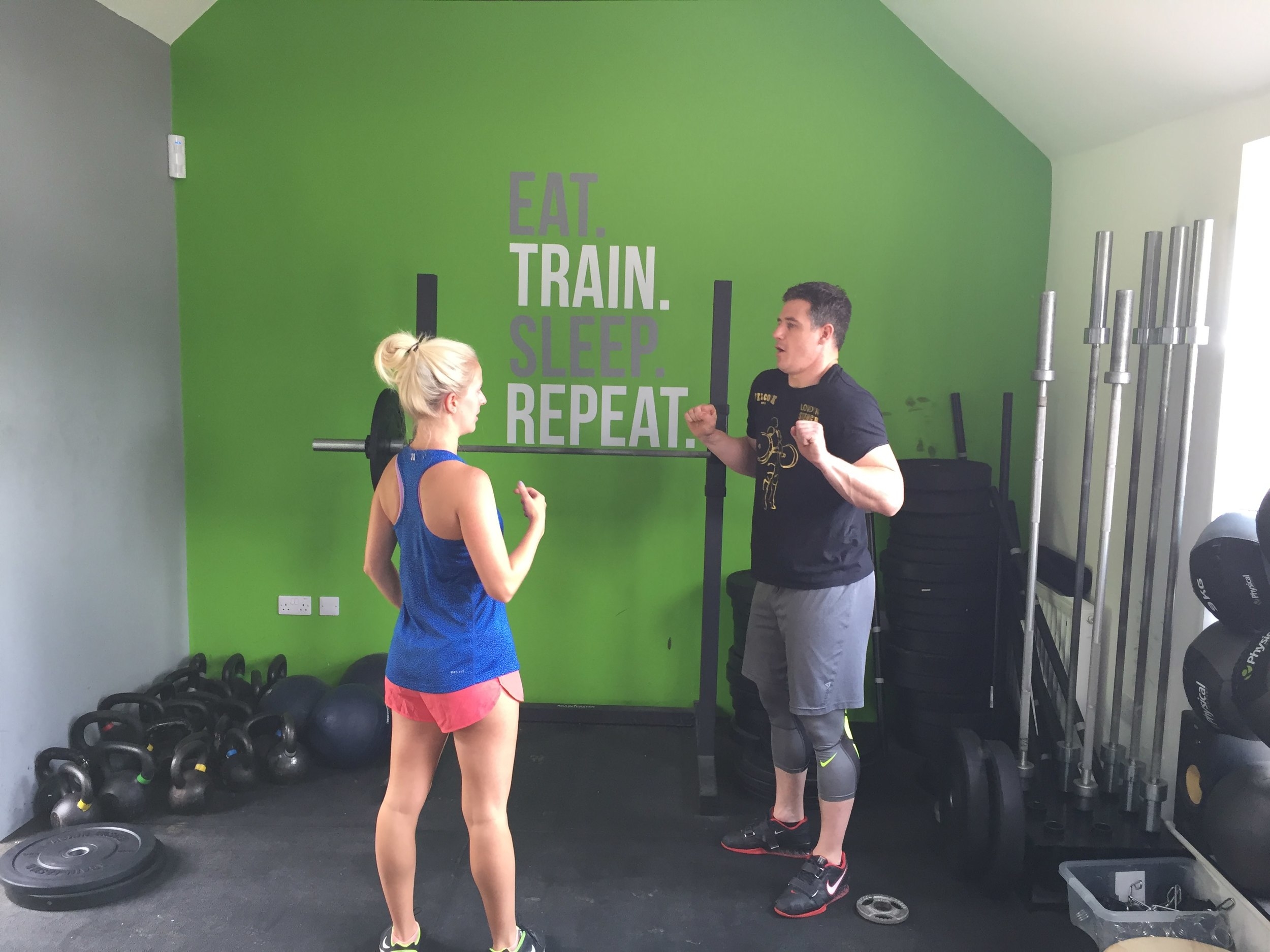A Good Feeling
Real results speak for itself:
Working on the programming for the next 6 months we couldn't be more pleased to see the whiteboard posted Monday. What an amazing progress you have made!
But what if your gains are not coming anymore? Your numbers stagnate and frustration kicks in? There's a key to continued progress, a few basic rules that helps you to stay on your journey. These rules are not made up or from academic research papers. These rules are based on real life experiences from your coaches who decided some time ago to work on better version of themselves.
1. Consistency
The more you do it, the better you get at it. Goes almost for anything in life and is for sure a line we all tell our children. More doesn't mean train longer. It could mean more often but what we really mean is be consistent over a longer period of time to get results.
Our programming is structured around certain objectives and only works if you stick with it. For example if your aim is to work on lower body strength and Monday is squat day then stick with it until the squat program is done. Usually we build up to 1RM over a period of time to solicit adaptation. We understand you won't always be able to make it, we all got a busy life. However try to come in for a make up session during Open Gym.
2. Intensity
That one more rep... every second counts. Yes it does. The WOD's are designed to trigger adaptation. We want you to be outside your comfort zone. Always? No not always. A strength WOD might be prescribing to work at 70% of your 1RM and have different objective versus a strength WOD testing your 1RM. Threshold training WOD is very different from a Cardiac Output WOD. So there's a lot variety in our programming and that's done for a reason.
Intensity needs to be achieved in the context of the WOD. An Olympic Weight Lifting Technique session requires different intensity then 5k Row. It is relative.
CrossFit's definition of absolute intensity is simply average power; and average power is force times distance divided by time. Absolute intensity is a mathematically substantiated, empirically defined term. In other words it is driven by reps, load and how long it takes you to complete.
Relative intensity, however, is subjective, depending purely on the individual’s physical and psychological tolerances. Relative intensity means you have to work as hard as you can without overdoing it.
Both absolute and relative intensity, though very different by definition, must be pursued in the same manner: with steady progress. Intensity is best built up gradually over time. We need intensity to garner the unprecedented benefits of CrossFit, but we also need to begin at a very moderate level and steadily build upon that foundation.
At ChalkBox we define intensity as how well you execute your workout. We see it as a subjective measure taking into account technique (and consistency of), reps and load. This is different for everyone. Coming in to give it all you got, every single time, it training with high intensity!
3. Log your workouts
This is an absolute classic error which people repeat again and again. There is absolutely no excuse whatsoever to not log your workouts. It doesn’t matter how you do it, just do it!
Progressing at CrossFit is actually an extremely simple concept. All you need to do is a little bit more than you did the last time. Our programming is set up to give you enough exposure to the same movements that you can practice and improve them, as well as employing some constantly varied conditioning workouts.
If you did 5 sets of 5 reps at 40kgs on the press last week, you need to either do more weight than last time or more reps. That represents progress. This is a whole other topic of discussion, but it really doesn’t need to be a lot more weight. 41kgs would represent an acceptable improvement. Remember that lots of small improvements over a long period (see point 1) represent significant improvement in the long term.
Unfortunately what we often see is people who come in and have no idea what they did last week. So they do a number that may or may not be better than the previous workout. You may progress like this but why be so haphazard when simple solution is to write everything down?
Don’t underestimate the motivational power of a log. If you keep track of your workouts, every time you train you will have a specific task that you will want to accomplish. This can really help to keep you focused and motivated.
4. Be coachable
Your coaches love to share their passion for strength and conditioning. Nothing gives us more pleasure than seeing you make progress. It is very frustrating when members ignore information and advice. Frustrating for both as usually it ends up with a lack of progress in the gym which nobody wants. If you buy into the coaching and the program, progress will be much easier to come by. Any advice a coach gives is to help, not hinder. Sometimes it may hurt the ego if the cue involves scaling a movement or taking weight off the bar, but this is to make you better not worse.

